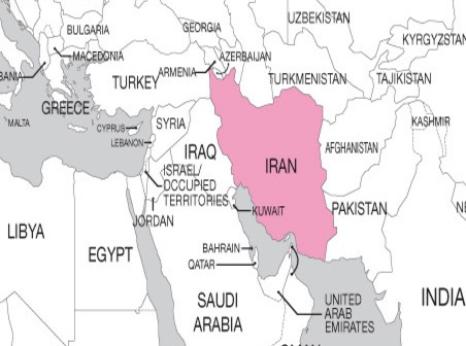Iran: Kurdish Men Forcibly Disappeared For Months

The Iranian authorities have persistently denied the families of Pejman Fatehi, Vafa Azarbar, Mohammad (Hazhir) Faramarzi and Mohsen Mazloum any information about their fate and whereabouts; on multiple occasions officials denied any knowledge of the four men, even after the videos of their forced “confessions” were broadcast. Following video-recorded appeals by the mothers of Pejman Fatehi, Mohammad (Hazhir) Faramarzi and Mohsen Mazloum, which began circulating online in January 2023, pleading for the authorities to grant them access to their sons, Ministry of Intelligence agents summoned family members for interrogations and threatened them with imprisonment for making any further enquiries about the fate and whereabouts of the four men. Their lawyer has also attempted to gather information on their case on multiple occasions by sending letters to Tehran’s Evin Prison and the Interior Ministry, and enquiring in courts, but the authorities have ignored his requests.
The first time the men’s families had any information about them since their arrests in July 2022 was on 12 October 2022, after they had been forcibly disappeared for 80 days, when their forced “confessions” were broadcast in a propaganda video on state television. In the video, reviewed by Amnesty International, the authorities claimed that Pejman Fatehi, Vafa Azarbar Mohammad (Hazhir) Faramarzi and Mohsen Mazloum were arrested near Esfahan and had planned to bomb a “strategically important industrial estate” under the instruction of Israel’s intelligence agency, Mossad. In an open letter to the UN Special Rapporteur on the human rights situation in Iran, Javaid Rehman, dated 26 November 2022, the men’s families describe the faces of the four men in their forced “confession” as “weak, tired and tortured.” In their letter, the families also deny the authorities’ claims that the men had been involved in any “terrorist” and violent acts. On 5 December 2022, the same propaganda video was broadcast again on state television, retraumatising the four men’s families and raising further alarm about their safety and wellbeing.
In response to a statement by Ministry of Intelligence published on Iranian state media on 23 July 2022 about the apprehension of four unnamed individuals in connection to “terrorist activities”, Komala issued a statement, on 27 July 2022, “vehemently denying the false and baseless accusations” against its members and stated that the four men were arrested in West Azerbaijan province while they were engaged in organizational and political activities.
Under international human rights law and standards, the right to freedom of expression includes the right to peacefully advocate for any political opinion so long as the ideas espoused do not advocate hatred constituting incitement to discrimination, hostility or violence. The right to freedom of expression is protected under the International Covenant on Civil and Political Rights, which Iran has ratified. Anyone arrested or detained on a criminal charge, including those related to “terrorism”, must be treated in full compliance with Iran’s human rights obligations including the right to a fair trial. These include the rights to choose one’s own lawyer; to access effective legal assistance from the time of arrest and throughout the pre-trial and trial proceedings; to be brought promptly before a judge; to challenge the lawfulness of detention before an independent, impartial tribunal; to be presumed innocent; to remain silent and not to be compelled incriminate oneself or to confess guilt; to obtain full access to relevant evidence; to not be detained on vague charges; to examine and cross-examine witnesses; to receive a fair, public hearing before a competent, independent and impartial tribunal; and to be provided with a public, reasoned judgement. Amnesty International has documented a pattern of systematic violations of the rights to a fair trial in Iran from the time of arrest and throughout the investigation, trial and appeal proceedings. Courts routinely ignore allegations of torture and other ill-treatment, without ordering an investigation, and rely on torture-tainted “confessions” to issue convictions and sentences, including in death penalty cases.
Amnesty International opposes the death penalty in all cases without exception regardless of the nature of the crime, the characteristics of the offender, or the method used by the state to kill the prisoner. The death penalty is a violation of the right to life and the ultimate cruel, inhuman and degrading punishment. Amnesty International has consistently called on all countries that retain the death penalty including Iran to establish an official moratorium on executions, with a view to completely abolishing the death penalty.
Ethnic minorities in Iran face entrenched discrimination which curtails their access to education, employment and political office. The Iranian authorities are increasingly using the death penalty as a tool of political repression against ethnic minorities, particularly against Kurds and Baluchis, who are disproportionately impacted by death sentences and also being executed in secret, with the authorities then refusing to return their bodies for burial to their families.